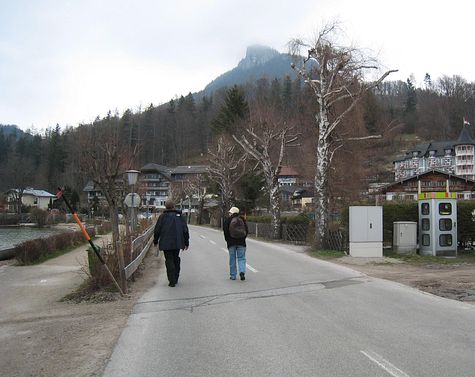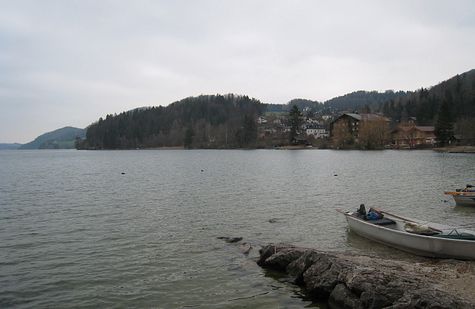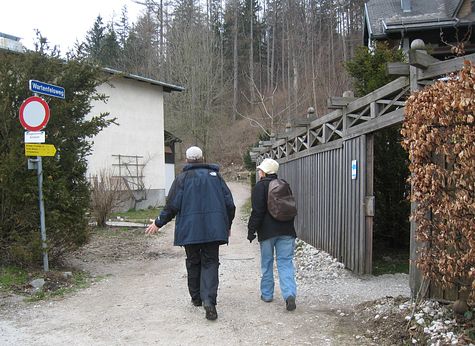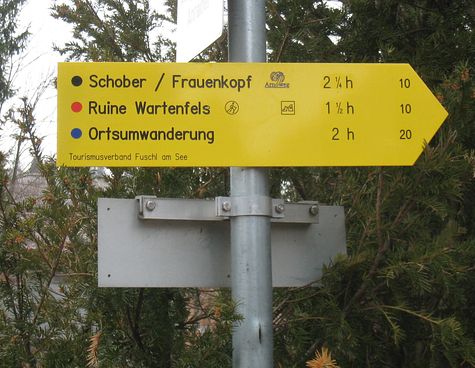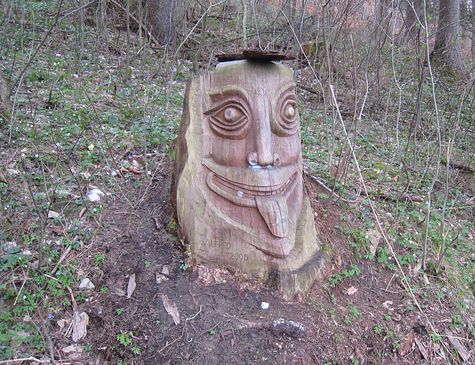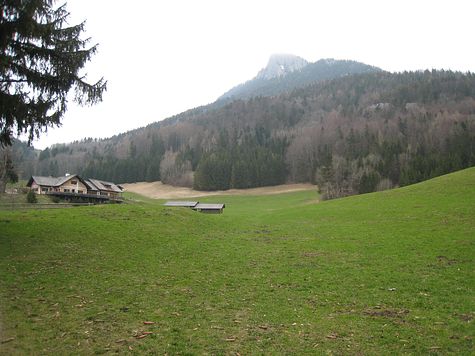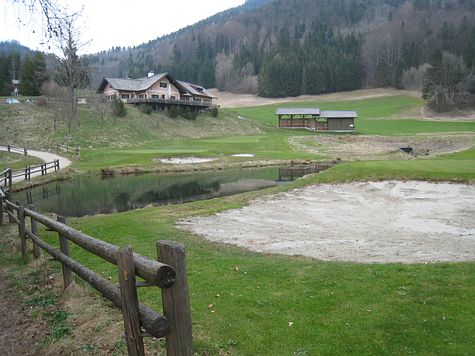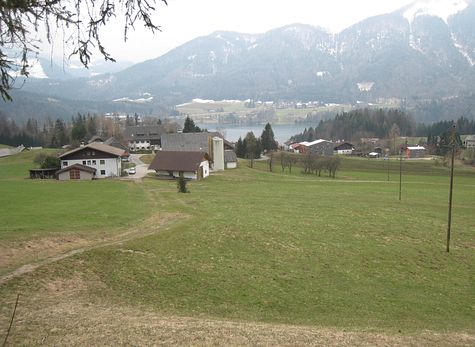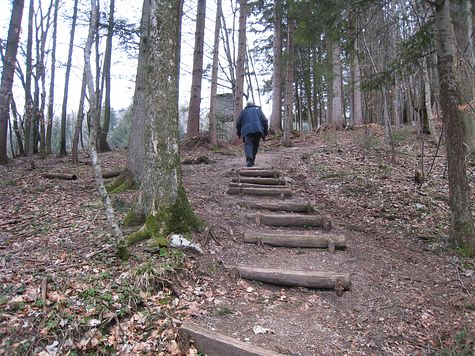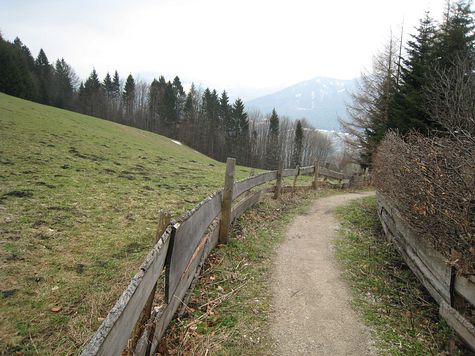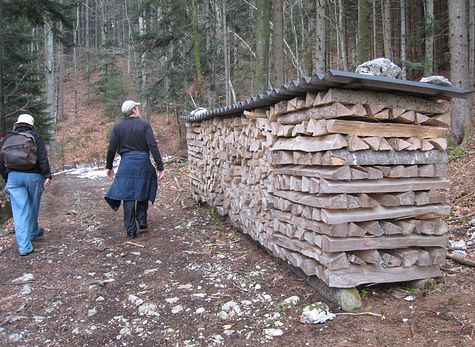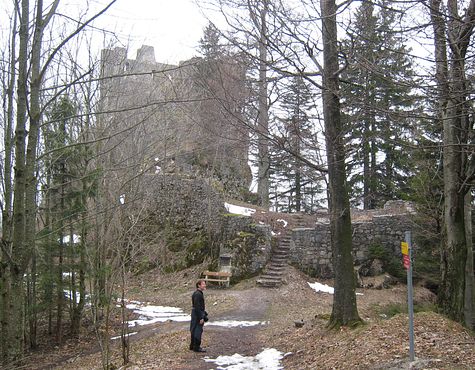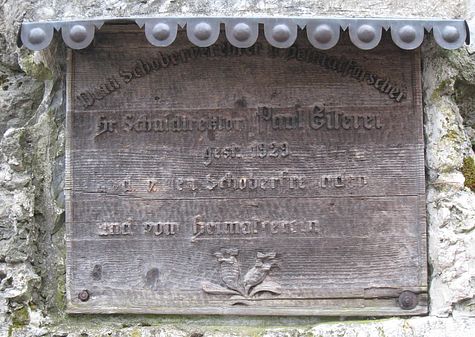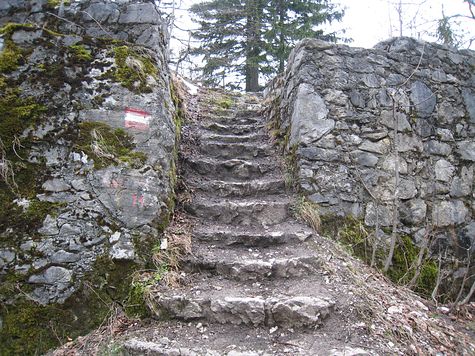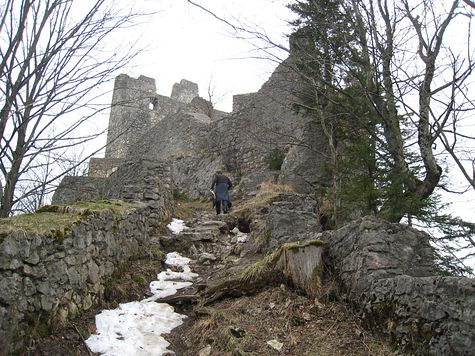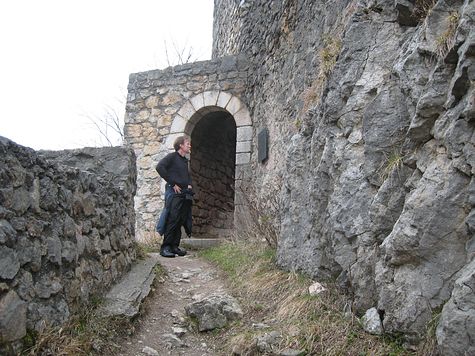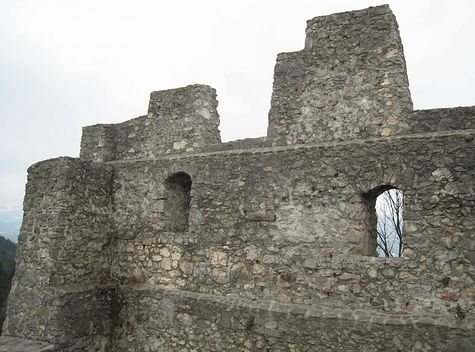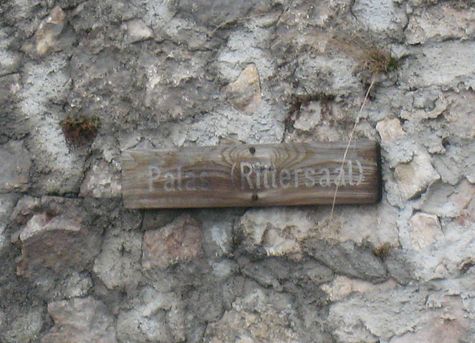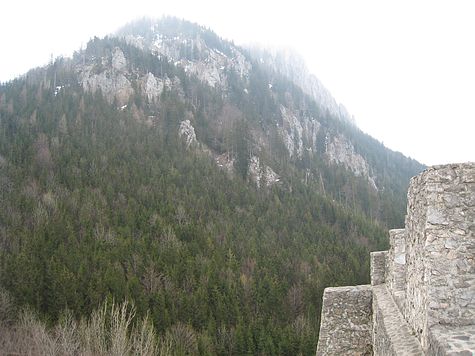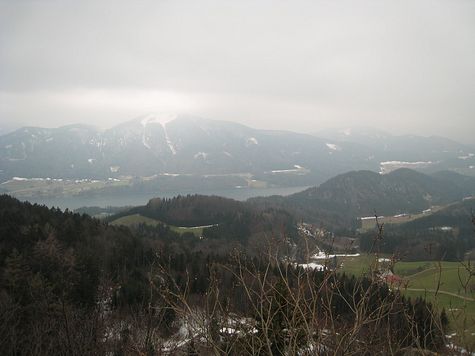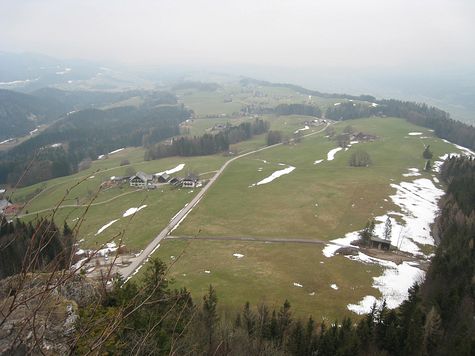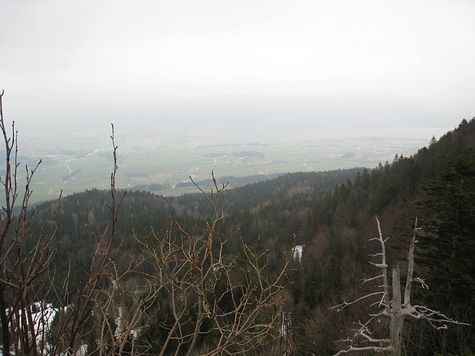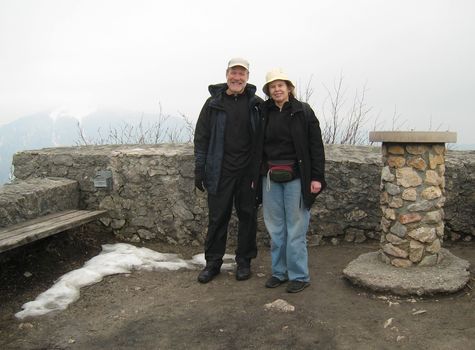Fuschlsee is a clear mountain lake, from which the village restaurants get the fresh fish daily.
The path starts modestly, in a right-of-way just off the road.
A 90-minute estimate of the walk to the ruins is conservative, and we wouldn’t take that long.
A carving in a tree stump serves to welcome hikers.
The path cuts through the forest to a clearing.
The bridge crosses a well maintained pond by a sand trap: the local golf course.
Looking back, the farms have an inspiring view of the lake and mountains.
The walk up the mountain is a slow incline. Gary is probably in better physical shape than Allenna or myself.
The route joined an unpaved road, with fences discouraging hikers from wandering onto private property.
Re-entering the forested, we passed a ready stand of firewood. The owners either had stocked up too much from the previous winter, or really want a generous inventory of well-cured wood.
The trail became a bit muddy with melting snow. The path wasn’t completely clear, but Gary led us to the ruins.
I don’t read German. I presume that the owners of the Wartenfels Castle granted access to the site in 1929.
The stone steps at the base are well worn. Care should be taken on ascending.
The steps that follow are in worse shape, as trees have become overgrown.
There’s a plaque by the main entry to the castle.
The castle has a history back to 1259, with 1301 and 1564 as significant years.
The entry is tight, presumably making it easier to defend. The stairs then open up to a wall at a higher level.
The small wooden sign on the wall is weather-worn.
Although we had walked a long way up, the castle is not yet near the top of the mountain.
The clouds didn’t lift for the view back to the lake.
The farms and road through this mountainous terrain must be tough to pass through during winter.
In the distance, we could see more farmland on the next plateau.
With the increase in altitude, the temperature had dropped significantly, so we donned on our hats and started to zip up our jackets.
Gary was game to continue the walk further up the mountain, but we were unsure whether the weather would turn for the worse. The risk of rain led us to appreciate the fresh air and exercise to this vista, and we began the walk back down.

